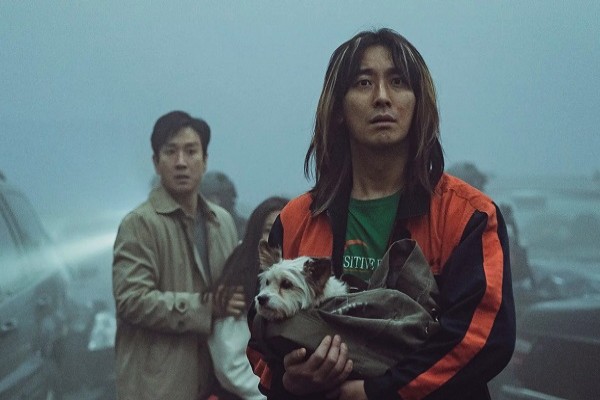130, Suyeonggangbyeon-daero,
Haeundae-gu, Busan, Republic of Korea,
48058
KIM Tae-gon, President of KwangHwaMoon Cinema
Dec 20, 2016
- Writerby KIM Hyung-seok
- View2223
“I wanted to make a movie label that you can trust”

There is a movie production company making a small yet significant change in Korean cinema. KwangHwaMoon Cinema, the producer of three films including Sunshine Boys (2013) by KIM Tae-gon, The King of Jokgu (2014) by WOO Moon-gi and The Queen of Crime by LEE Yo-sup.
KwangHwaMoon Cinema is a creator’s group somewhere between independent cinema and commercial film production, and is already manifesting its distinctive quality only with three movies in the filmography.
The beginning of this meaningful history is Sunshine Boys, and KoBiz has met KIM, who is the co-director of this film and also president of KwangHwaMoon Cinema.
Can you tell me about your career history before KwangHwaMoon Cinema?
When I was in the graduate school of Chung-ang University, there was a project to support feature films. My feature debut, The Pot (2009), dealt with the problem of the elderly through the horror genre. Short! Short! Short! (2011), an omnibus film, was also in the same genre. However, it was not that I was attracted to the horror genre itself. I was more interested in making stories.
How was KwangHwaMoon Cinema made?
When I was in my thirties, I recalled the experience of my early 20s and made Sunshine Boys. At that time, my colleagues at Korea National University of Arts helped me a lot. We took turns to help each other’s works. I was not able to pay them well, but they worked so hard for me. I thought it would be nice if we could keep up the team rather than breaking up once we got a film done.
Who are the members?
As for directors, there are myself, WOO Moon-gi of The King of Jokgu, LEE Yo-sup of The Queen of Crime, JEON Go-woon currently working on Little Princess, KWON Oh-kwang of Collective Invention, and producers including KIM Bo-hee and KIM Ji-hoon.

I wanted to make a movie label that you can trust. When it comes to independent cinema, audiences tend to turn away. I wanted to change that kind of bias.
Would you say there is a specific KwangHwaMoon Cinema's way of film making?
I think our purpose of making films is different from other production companies. Although KwangHwaMoon Cinema is also a commercial company, profit generation is not the ultimate purpose. Our films reflect the distinctive character of our directors and we respect them. So I have never made a whole plan for the company. Directors are lonely, if you know what I mean. In this sense, it is a good thing to have a film community like KwangHwaMoon Cinema. We are colleagues and not competitors, and when somebody has an idea or has a scenario draft ready, we talk about them hoping the best for them.
Is there a specific collaboration pattern?
Every case is different. For The King of Jokgu, I wrote the script and WOO directed the film. The story of The Queen of Crime was made while we were having a chat. Forthcoming Little Princess is full of the ideas of JEON Go-woon, the director. But what counts in the end is the director's own voice. It is hard to compare with commercial movies in visuals or spectacles when our films are in a low budget. You have to take the best shots in the least number of shooting. That's why our way of making films is all the more important.
What would you say is the KwangHwaMoon Cinema's distinctive quality?
It seems to be a matter of empathy. Sunshine Boys is a story on military service, something every Korean man has to go through. The King of Jokgu tells the reality of the youth today. The Queen of Crime is the story of a mother and son. These are some of the things we feel we can manage well in our own way.
Your last work Familyhood is a commercial film made out of KwangHwaMoon Cinema. What was it like?
Essentially, the process was the same. It was the role that I took that was different. In KwangHwaMoon Cinema, I worked as a producer and director, but in Familyhood I could concentrate on directing. As the cost of production increased, the process of communication and persuading people was hard, but I think that's how the film got better made.
Is there an attempt to put KwangHwaMoon Cinema on a more stable basis in industry?
I did think about it, actually. We also had an external offer. However, KwangHwaMoon Cinema is basically a creator’s group, and if we do not come up with a project from within, we cannot make movies. Or, if you have money ready, you may have to make a movie so that you can keep the money moving. I think it is the kind of situation we have to be careful about. We want to write and make movies in a freer and healthier situation, if you know what I mean.
What is the next plan for KwangHwaMoon Cinema?
Initially, all the directors of KwangHwaMoon Cinema were to make one feature film. In fact, that goal has been achieved. In current situation, it's hard to suggest one single future goal for KwangHwaMoon Cinema. I am just so happy to have friends with the same job as mine, and work together with them.



















